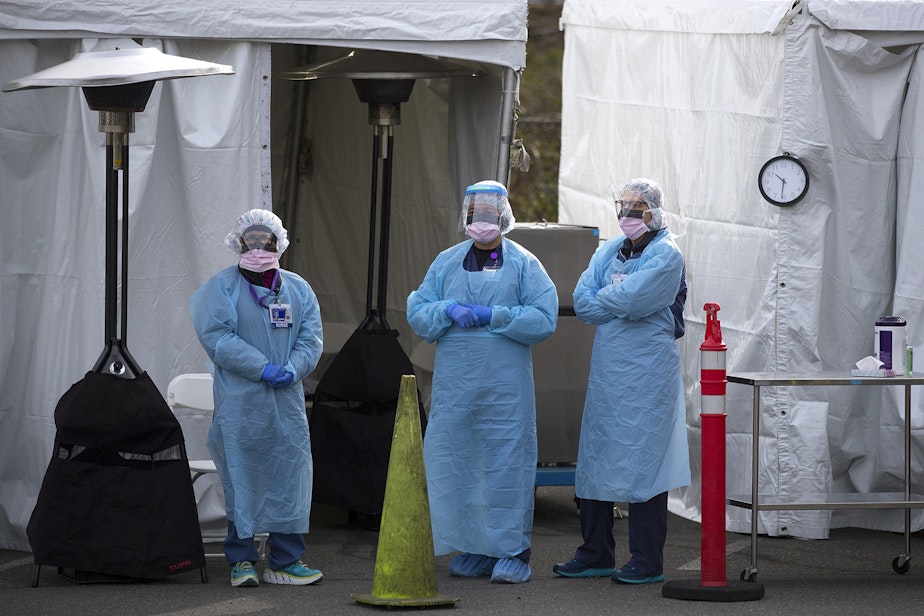'If it had to happen somewhere, this is a pretty good place,' says top COVID-19 detective

A 40-person team from the Centers for Disease Control and Prevention is working in Seattle to help local officials and hospitals as they struggle to stay on top of the nation’s densest cluster of coronavirus cases.
Epidemiologist Tom Clark leads the team that is stationed at Public Health – Seattle & King County.
He arrived from Atlanta on Feb. 29 and got to work the next day with a CDC crew of 18. Another 24 got started March 6.
Drive-through COVID-19 testing expands in Seattle
The federal team of disease detectives have been working to relieve worn-out local health officials and boost their efforts to slow down the novel coronavirus.
“This is sort of a worst-case scenario,” Clark said. “This is a large outbreak, and it's taking up the resources of the entire country.”
Still, Clark said, there’s a silver lining to how the outbreak has unfolded in the United States.
Sponsored
“If it had to happen, it's good that it happened here,” Clark said. “This is a county with very strong capacity, you know, long expertise."
He pointed to King County’s success at “pretty quickly” shutting down last year’s measles outbreak.
“They're very good at contact tracing, case investigations and implementing prevention recommendations really fast,” Clark said.
“We have an incredible local and state public health system here, and we are very fortunate,” University of Washington epidemiology professor Janet Baseman said.
“We just have top people,” she said, praising both county and state leaders.
Sponsored
Still, local public health officials say funding for public health has suffered, especially as our region’s population has skyrocketed.
“Funding hasn’t kept up with population growth, or costs generally,” Public Health – Seattle & King County spokesperson Hilary Karasz said in an email. “Public Health lost our dedicated, stable, funding source decades ago, and we have been shouting from the rooftops about it ever since.”
The National Health Security Preparedness Index, prepared by the Robert Wood Johnson Foundation, pegs Washington state as “significantly below the national average” in 2018.
One indicator of the budget crunch for public health: Much of the work being done to trace coronavirus victims’ contacts with other people in King County is still done on paper, according to Baseman.
She has deployed public-health graduate students – dubbed a SEAL, or Student Epidemic Action Leaders, team – to work at public-health agencies fighting this epidemic. Baseman has also asked other students and faculty at the UW School of Public Health for volunteers.
Sponsored
Clark said it’ll take effort from everyone to get through this.
“Thankfully, in a civic-minded place like Seattle, people are willing to help each other out in ways they may not be used to,” he said.
Clark said his CDC team will be in Seattle as long as they’re needed.




